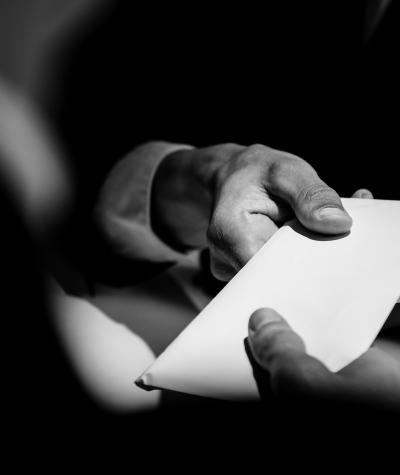Recent campaign finance reports reveal that Lance Harris, a Louisiana state legislator and a candidate in Louisiana’s 5th Congressional District, is bankrolling a super PAC that’s supporting his run for the U.S. House, and Campaign Legal Center (CLC) has filed a complaint with the Federal Election Commission (FEC).
Until this fall, the super PAC Stand for Truth had been doing very little: it was carrying a cash balance of less than $6,000, and it hadn’t run an ad or received a single contribution since 2016.
In early September, however, Harris transferred $120,000 from his state campaign to that dormant super PAC. With that contribution, the super PAC became more than 95% funded by Harris.
Then, just five days later, the super PAC began spending in support of Harris’ congressional run. And all of the super PAC’s pro-Harris spending—$102,000 so far—went to a media firm that Harris’ federal campaign is also contracting with.
The scheme appears to violate multiple provisions of campaign finance law designed to guard against corruption.
One is the separation between candidates and super PACs. Not only was the super PAC over 95% funded by the contribution from Harris’ state committee, but the firm that the super PAC paid to research and produce its pro-Harris ads was also one that Harris’ campaign was simultaneously paying.
It strains credulity to believe that days after receiving $120,000 from Harris, the Texas-based Stand for Truth just happened to hire the same Virginia-based vendor as Harris’ campaign, and just happened to spend over $100,000 in Harris’s race.
The only reasonable conclusion is that Stand for Truth ran the pro-Harris ads at the request or suggestion of Harris and hired the same vendor as Harris, enabling the firm to ensure that the super PAC and campaign were part of a unified strategy.
Super PACs are allowed to raise unlimited amounts of money from individuals and corporations, but only if they operate independently of the candidates they support.
Otherwise, the limitless contributions to the super PAC effectively become as valuable as direct contributions to the candidate. That greatly increases the risk of corruption and its appearance—hazards that candidate contribution limits aim to guard against.
If the super PAC’s spending was made at the request or suggestion of Harris or his campaign, if Harris or his campaign was materially involved in decisions about spending, and/or if the common media vendor served as a conduit for information to flow from the campaign to the super PAC, then they illegally crossed the line separating campaigns and super PACs.
CLC’s complaint also alleges that this scheme violated the ban on federal candidates using state campaign funds to support their federal campaigns (which falls under the so-called “soft-money” ban).
Contributions to state campaign committees like Harris’ are raised under a different set of rules, so candidates can’t use funds from those committees when they run for federal office.
For example, Harris’s state campaign accepted contributions from corporations, including active federal contractors like Exxon Mobil and Phillips 66.
Federal law prohibits corporations from giving to campaigns and prohibits corporations with federal contracts from giving to any political committees. The soft-money ban prevents candidates from getting around such restrictions.
Candidates are not supposed to evade the rules by bankrolling their federal campaigns with state campaign funds, and super PACs are not supposed to act as arms of campaigns. The FEC should make that clear by enforcing the law here.
